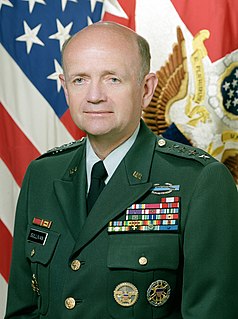A Quote by Frances Beinecke
I attended the climate talks in Copenhagen in 2009, and back then, national governments waited until days before to submit climate plans, and the U.S. based its pledge on a proposed bill that would fail in the Senate.
Related Quotes
The climate of Ohio is perfect, considered as the home of an ideal republican people. Climate has much to do with national character.... A climate which permits labor out-of-doors every month in the year and which requires industry to secure comfort--to provide food, shelter, clothing, fuel, etc.--is the very climate which secures the highest civilization.
Climate Change is a national security issue. We found that climate instability will lead to instability in geopolitics and impact American military operations around the world. People are saying they want to be perfectly convinced about climate science projections. But speaking as a soldier, we never have 100 percent certainty. If you wait until you have 100 percent certainty, something bad is going to happen on the battlefield.
There is no doubt that pollution contributes to the climate changing around us, but what I refuse to do is support a climate tax bill like Waxman/Markey put in place that would have cost farmers and ranchers in the state, that would cost small business the opportunity to grow, that would increase that bills that families pay, $1,700 a year.
Despite the international scientific community's consensus on climate change, a small number of critics continue to deny that climate change exists or that humans are causing it. Widely known as climate change "skeptics" or "deniers," these individuals are generally not climate scientists and do not debate the science with the climate scientists.





































